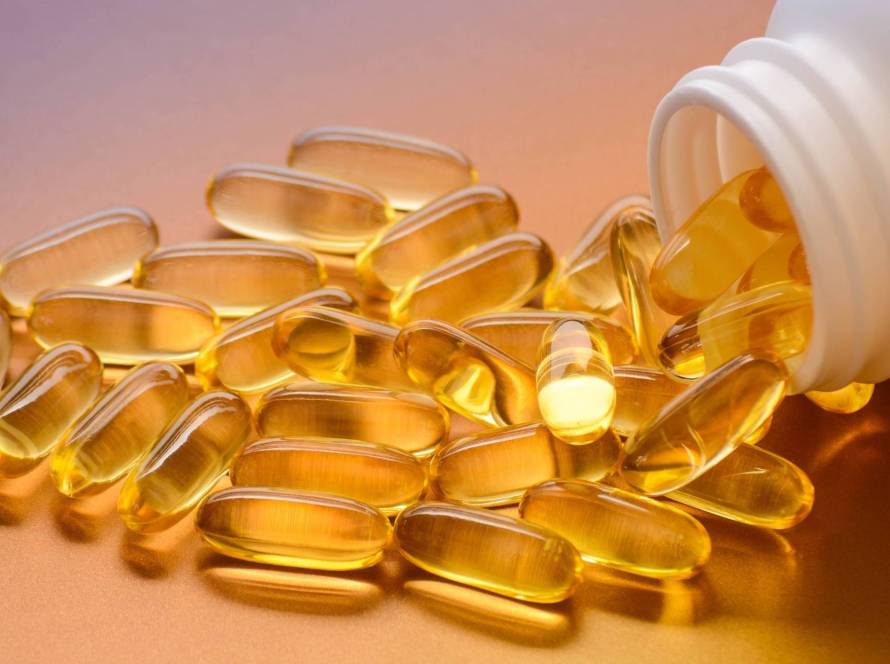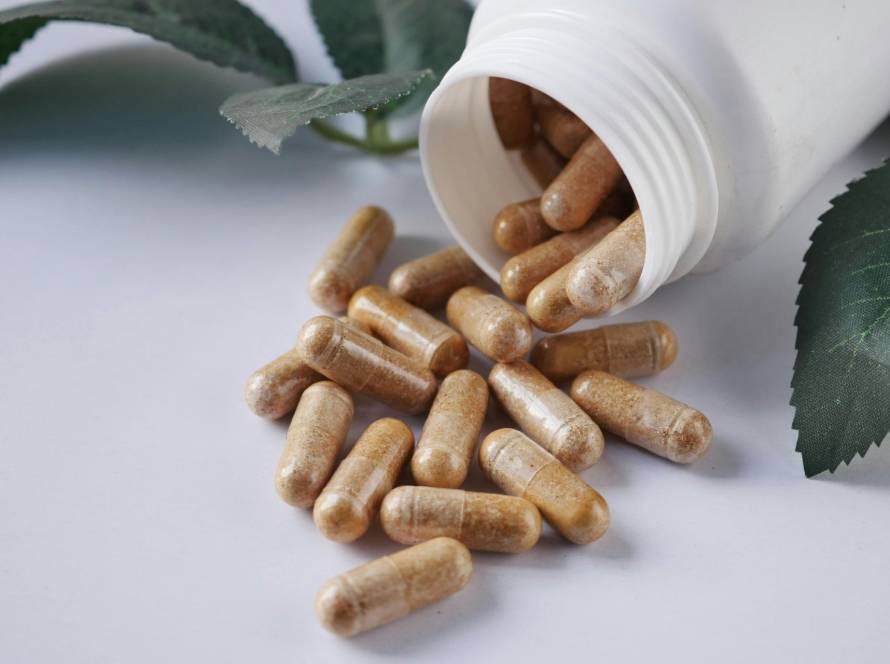Berberine is a natural compound that exists in plants like European barberry and Oregon grape. Studies have shown that berberine lowers blood sugar levels as effectively as the diabetes medication metformin.
The question “does berberine cause headaches?” deserves a detailed look at the scientific evidence. Understanding this connection is vital to make informed decisions about berberine supplementation.
Connection between berberine and headaches
Berberine is generally well tolerated, but some people report headaches as a side effect. While not commonly seen in clinical studies, headaches may occur in sensitive individuals or when starting at a high dose. Possible causes include sudden changes in blood sugar, gut microbiota shifts or mild dehydration linked to digestive upset.
Taking berberine with food, starting with a low dose and staying hydrated can help minimize the risk. If headaches persist or worsen, it’s best to stop the supplement and consult a healthcare provider.
Understanding berberine: origins and mechanisms of action
The bright yellow compound berberine belongs to the benzylisoquinoline group of alkaloids. This natural substance has a bitter taste and works well against many health conditions. The compound’s origins and biological mechanisms help us understand why it sometimes leads to headaches as a side effect.
The natural sources of berberine
Several plant families contain berberine naturally. These include Berberidaceae, Ranunculaceae, Menispermaceae, Papaveraceae and Rutaceae. Here are some berberine rich plants:
- Berberis vulgaris (European barberry);
- Coptis chinensis (goldthread);
- Hydrastis canadensis (goldenseal);
- Phellodendron amurense (Amur cork tree) and Tinospora cordifolia.
The roots, rhizomes, stems and bark of these plants contain most of the compound. The berberine content changes based on species, location and growing conditions.
How berberine works in the body
Berberine’s main action comes from activating AMP-activated protein kinase (AMPK), a vital enzyme that controls metabolism and energy levels throughout the body. This happens through two paths: it blocks respiratory complex I in mitochondria and targets sirtuins, especially SIRT1 in adipose tissue and SIRT3 in the liver.
The compound binds to various enzymes and cellular parts and it affects DNA and RNA too. It works on multiple metabolic targets at once instead of just one pathway. This wide ranging activity explains berberine’s diverse effects.
Berberine’s effects on cellular metabolism
Berberine has many effects on metabolism. It boosts glycolysis by increasing glucokinase activity and helps insulin secretion while reducing gluconeogenesis and adipogenesis in the liver. AMPK signaling drives these actions.
The compound makes cells more sensitive to insulin by increasing insulin receptor (InsR) expression in muscle and liver cells. This happens through protein kinase D (PKD) and leads to better glucose uptake. It also helps glucose transporter 4 (GLUT4) move in muscle cells, which improves glucose absorption without using phosphatidylinositol 3-kinase pathways.
Berberine controls key cellular targets in lipid metabolism. These include acetyl-CoA carboxylase, microsomal triglyceride transfer protein and cholesterol transport proteins. Together, these actions cut down liver fat and improve lipid profiles.
Interaction with neurotransmitter systems
Berberine affects neurotransmitter systems, which might explain its link to headaches. It blocks monoamine oxidase (MAO) enzyme activity in mitochondria. This changes the levels of dopamine, norepinephrine and serotonin, key neurotransmitters in pain perception and headache mechanisms.
Research shows berberine raises dopamine levels in the brain, partly because it increases gut Enterococcus. Animal studies using 5-20 mg/kg of berberine showed effects like antidepressants. It did this by increasing noradrenaline and serotonin in the hippocampus and frontal cortex.
The documented benefits of berberine
Research shows berberine has exceptional therapeutic benefits for many health conditions. Studies prove it works well for metabolic, cardiovascular and inflammatory conditions. This makes it valuable in both traditional and modern medicine.
Blood sugar regulation and metabolic health
Berberine works as well as conventional diabetes medications. A key study showed patients with new type 2 diabetes who took berberine for three months saw big improvements. Their hemoglobin A1c dropped (from 9.5% to 7.5%), fasting blood glucose went down (from 10.6 to 6.9 mmol/L) and postprandial blood glucose decreased (from 19.8 to 11.1 mmol/L). These results matched what metformin could achieve.
Another study with poorly controlled diabetes patients revealed berberine supplements reduced fasting insulin by 28.1%. The insulin resistance (HOMA-IR) went down by 44.7%. Berberine works in several ways, it makes insulin work better, helps insulin production, boosts glycolysis, reduces gluconeogenesis and helps glucose transporters work better.
Berberine activates AMP-activated protein kinase (AMPK) like metformin does, but it offers more benefits through other pathways. Research shows it helps insulin production by increasing glucagon like peptide-1 levels. It also blocks intestinal alpha-glycosidase, which reduces how much glucose moves through the intestinal wall.
Cardiovascular and lipid lowering effects
The compound shows impressive results in managing lipids. Clinical trials have shown big drops in total cholesterol (20-29%), LDL cholesterol (25%) and triglycerides (35%) after taking berberine. A meta analysis of berberine’s effect on dyslipidemia showed it improved lipid profiles with any formulation. The results were even better when combined with silymarin.
Berberine protects the heart differently than statins do. Rather than stopping cholesterol production, it increases LDL receptor expression by stabilizing LDLR mRNA. The compound also blocks cholesterol absorption, helps remove cholesterol and affects PCSK9 levels, a protein that controls LDL receptor recycling.
Heart health benefits go beyond lipid control. Berberine stops platelets from clumping together by blocking platelet activation from things like adenosine diphosphate, collagen and arachidonic acid. It also reduces atherosclerotic plaque buildup, helps blood vessels work better and lowers blood pressure.
Anti-inflammatory and antimicrobial properties
Berberine fights inflammation throughout the body. It reduces inflammatory markers like TNF-α, IL-6, IL-1β and C-reactive protein in both lab tests and clinical use.
The compound’s antimicrobial powers are just as impressive. Studies show it works against many harmful organisms, including methicillin-resistant Staphylococcus aureus (MRSA), Escherichia coli and Cutibacterium acnes. It breaks down bacterial cell walls and membranes while stopping biofilm formation.
Common side effects of berberine
Berberine shows promising therapeutic benefits, but this natural compound comes with its share of side effects. We should know about these potential risks to make informed decisions about taking supplements.
Gastrointestinal disturbances
Most people report digestive system problems as berberine’s main side effects. Research consistently shows gastrointestinal discomfort that includes diarrhea, constipation, gas and upset stomach. These symptoms happen because berberine interacts with gut bacteria and affects digestive processes. Some people feel abdominal discomfort or notice swelling.
Symptoms vary among users but stay mild and usually go away after four weeks of regular use.
Neurological effects
People experience neurological side effects less often than digestive issues with berberine supplements. Research documents cases of headaches, dizziness and fainting. Higher doses or taking berberine without food can make these symptoms worse.
Medication interactions
Drug interactions create the biggest risks with berberine. The supplement blocks several liver enzymes. This blocking action can raise blood levels of medicines that these enzymes normally process.
Key medications to watch out for:
- Antidiabetic medications: blood sugar might drop too low when combined with berberine;
- Blood thinners: risk of bleeding increases because berberine slows blood clotting;
- Blood pressure medications: blood pressure could drop too low;
- Cyclosporine: berberine substantially raises cyclosporine levels in blood;
- Dextromethorphan: effects become stronger as the drug stays longer in our system;
- Sedative medications: combining these can cause too much drowsiness and slow breathing.
Anyone taking prescription medicines needs to talk to their doctor before using berberine. The supplement can make some medications weaker while dangerously strengthening others.
Our body reacts to berberine in several ways that might cause headaches. Blood sugar changes and shifts in brain chemicals play a role. These effects usually show up when doses are high or if our body is sensitive to metabolic shifts.
Berberine’s proven health benefits usually outweigh any possible side effects with proper use. In spite of that, watching how our body responds and sticking to recommended doses are the foundations of getting the best results while keeping headaches at bay.


